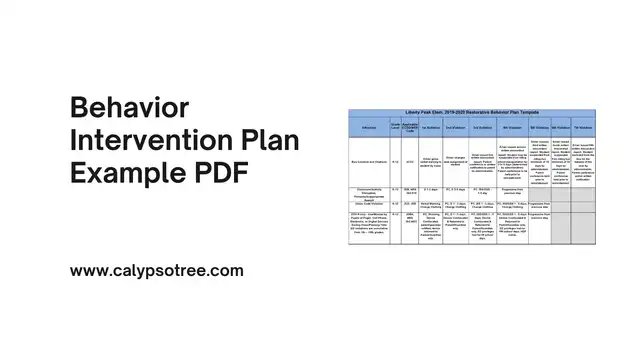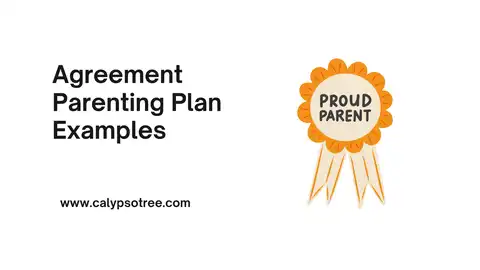The “Meet the Teacher” is important to the school year. It helps parents and teachers build strong relationships that benefit students. Using templates for this event can make it easier for everyone involved. This guide will show you how to use “meet the teacher examples to make the event successful.
What Is a “Meet the Teacher”?
A “Meet the Teacher” is a special time when parents come to school to meet their child’s teacher. This event usually occurs at the start of the school year.
It informs parents more about the classroom, teachers, and student learning. Using a template assists teachers in preparing the event so that everything is remembered.
Why Is “Meet the Teacher” Important?
This event is important because it helps build a strong relationship between parents and teachers. When parents and teachers work together, students do better in school. A template can help ensure that all the important information is shared so parents feel involved and informed.
What Should Parents Expect During a “Meet the Teacher” Event?
When parents attend a “Meet the Teacher” event, they can expect a warm welcome from the school staff and the teacher. This event is a great opportunity to learn more about what the school year will look like for their child. Here’s what parents can typically expect during this important event:
Introduction to the Teacher
The first thing parents will likely experience is an introduction from the teacher. This might be a brief talk where the teacher shares a little about themselves, including their background, teaching experience, and what they love about teaching. It’s a chance for parents to get to know the person spending a lot of time with their child.
Overview of the Classroom
Parents will usually get a tour of the classroom. The teacher might walk them through the different areas, like where the students keep their supplies, where they sit, and where they do special activities. This helps parents picture where their child will spend their days.
Classroom Rules and Expectations
The teacher will explain the classroom rules and expectations. These include how students should behave, how they will be graded, and what is expected of them in terms of homework and participation. Knowing these rules helps parents support their children at home.
The School Curriculum
The teacher will likely discuss what the students will learn throughout the year. This part of the event is important because it gives parents an idea of the subjects their child will study and the teacher’s goals for the class. The teacher might also explain how parents can help with learning at home.
Communication Methods
Parents will learn how to stay in touch with the teacher throughout the school year. The teacher might explain the best ways to reach them, whether by email, phone, or school app. Good communication between parents and teachers is key to helping students succeed.
Opportunities for Parent Involvement
The teacher might also discuss ways parents can be involved in the classroom or school. This could include volunteering for events, helping with class projects, or joining the parent-teacher organization (PTO). Being involved in school activities can help parents feel more connected to their child’s education.
Questions and Answers
At the end of the event, there’s usually time for parents to ask questions. This is a good time for parents to clarify anything they’re unsure about or to ask about specific concerns they might have about the school year. The teacher is there to help and provide answers.
Meet the Teacher Examples
Here are some Meet the Teacher Examples events that can be structured to ensure a positive experience for parents and students.
These examples show different ways teachers can approach the event, whether in person or virtual.
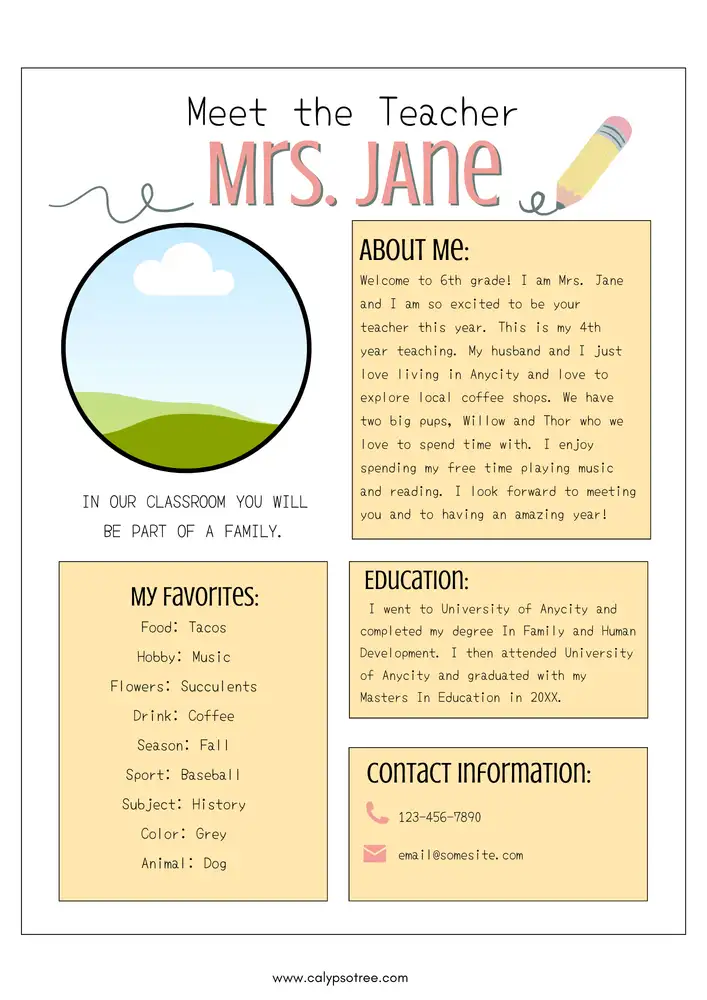
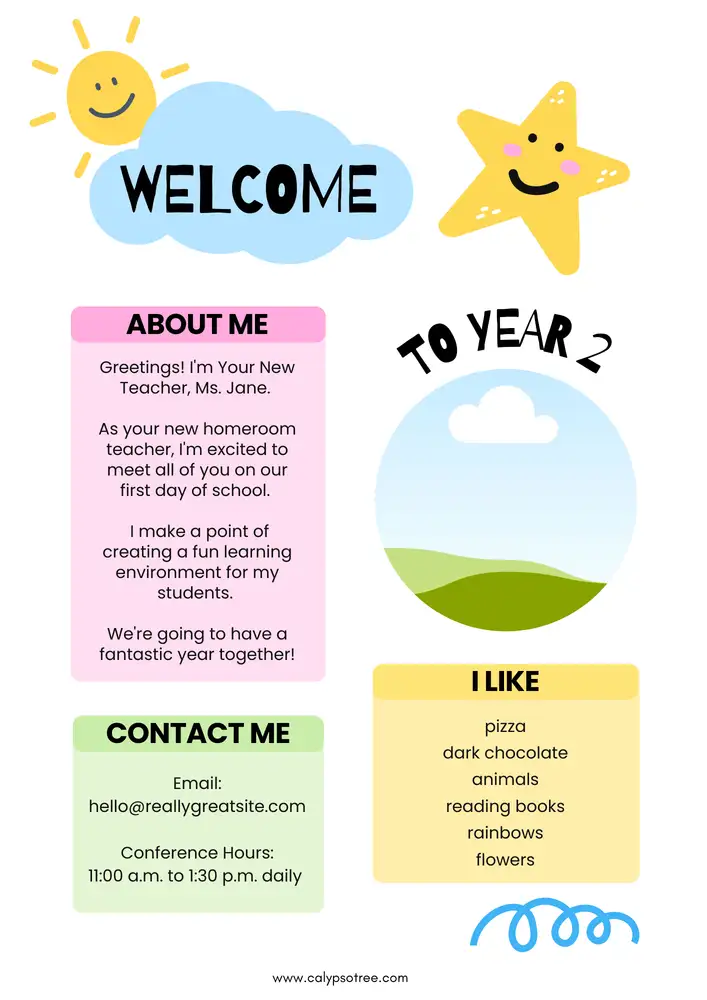
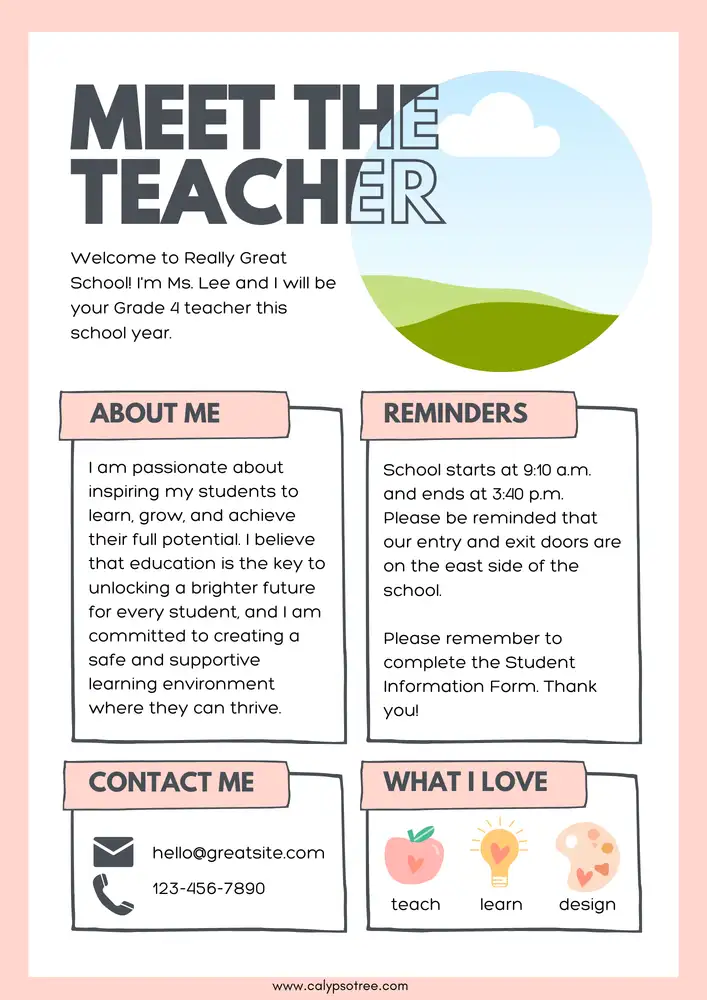
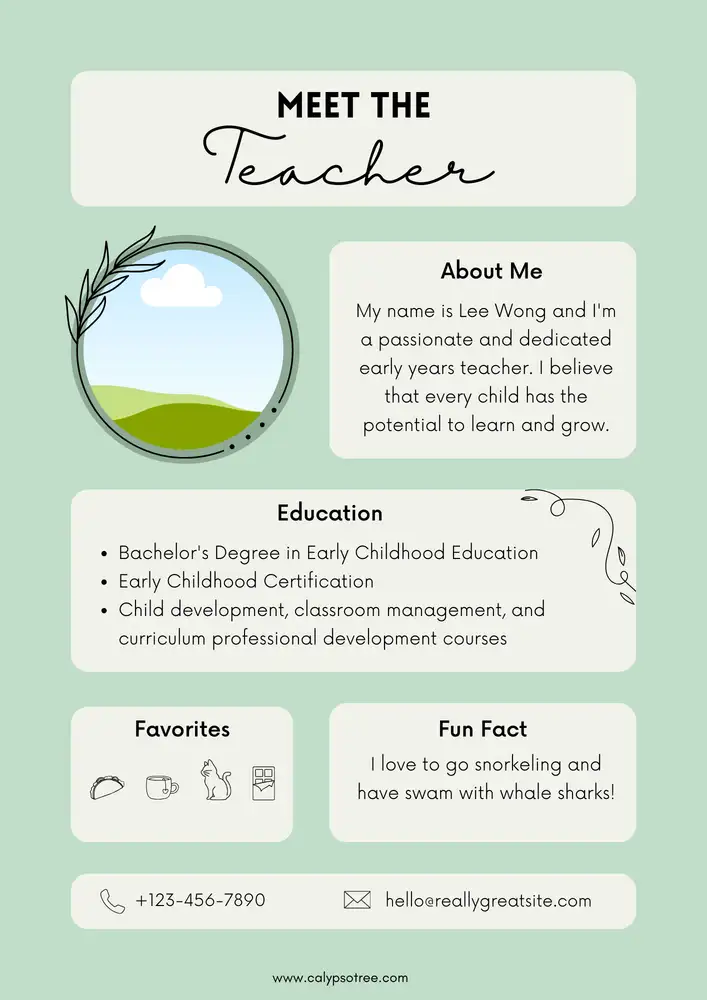
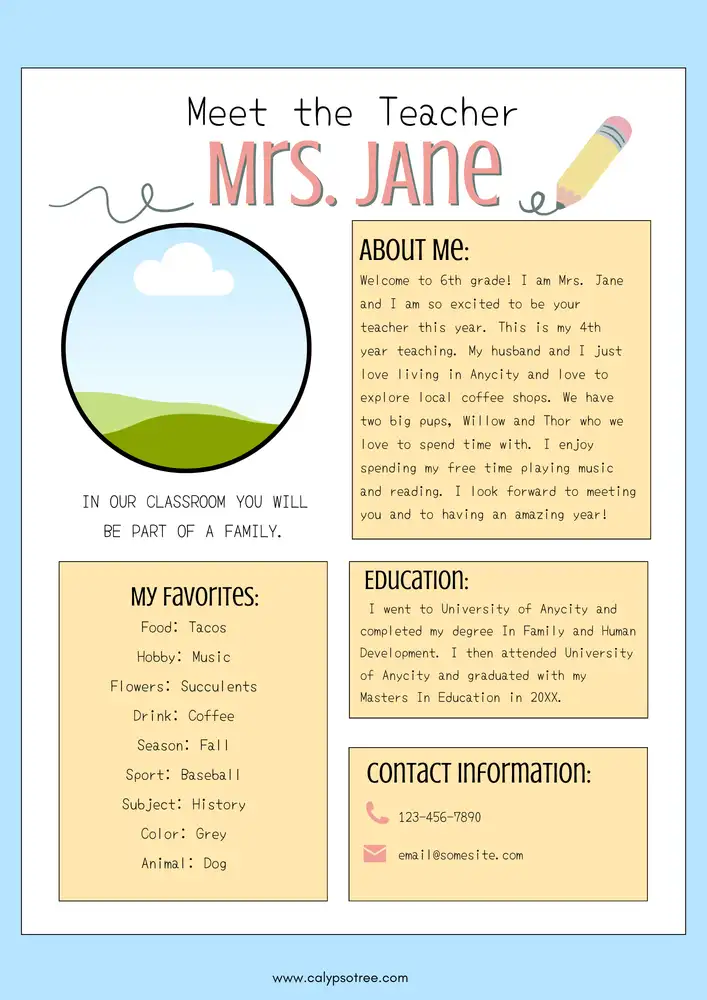
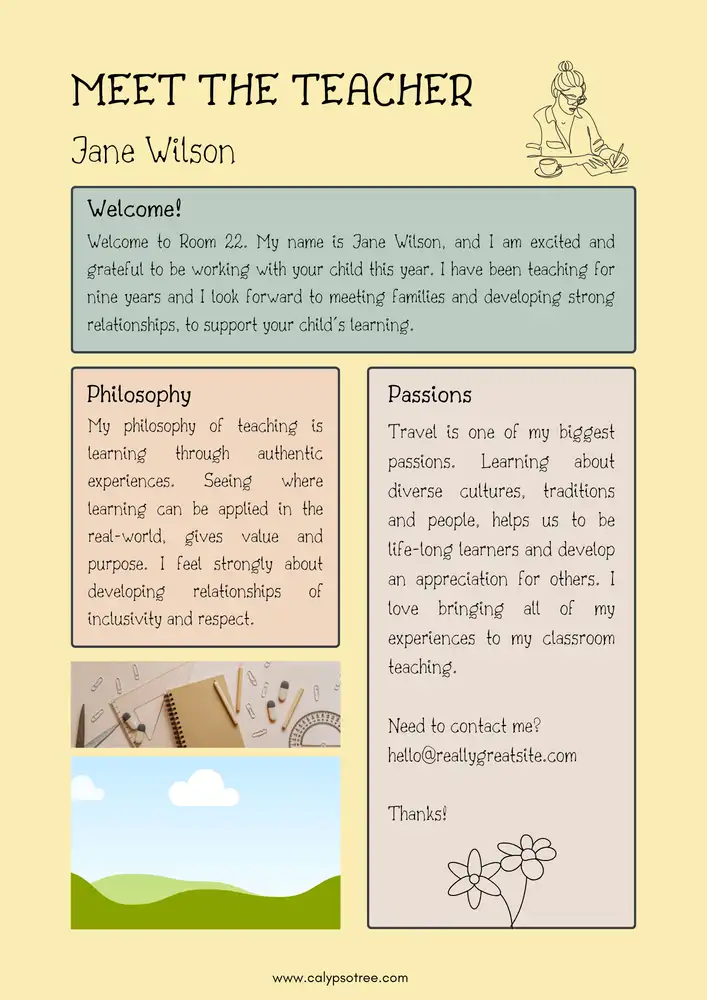
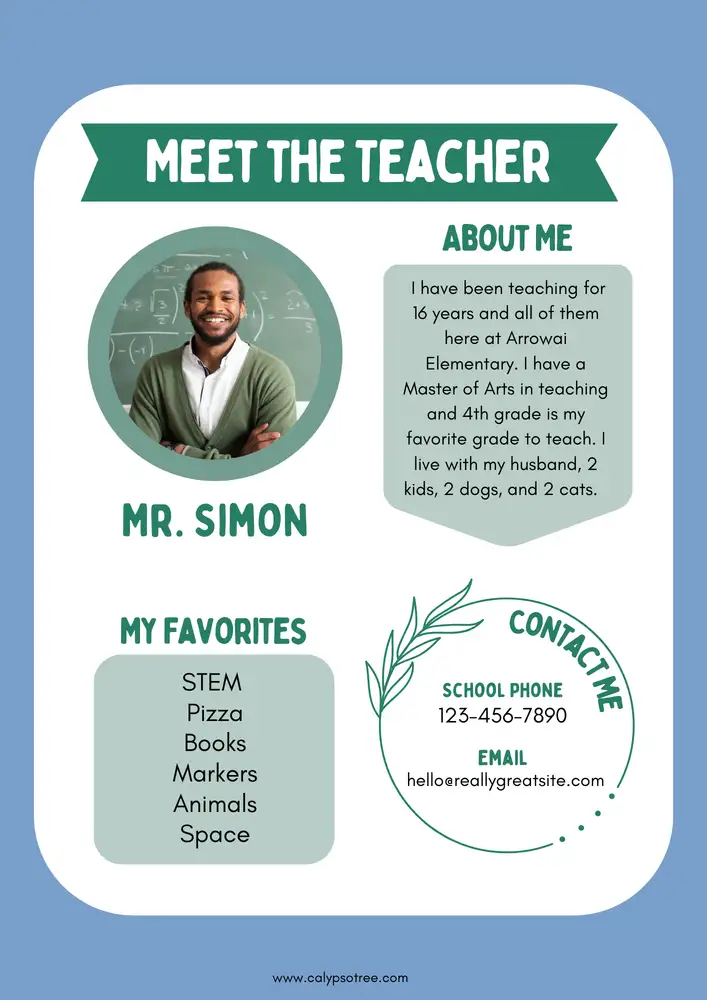
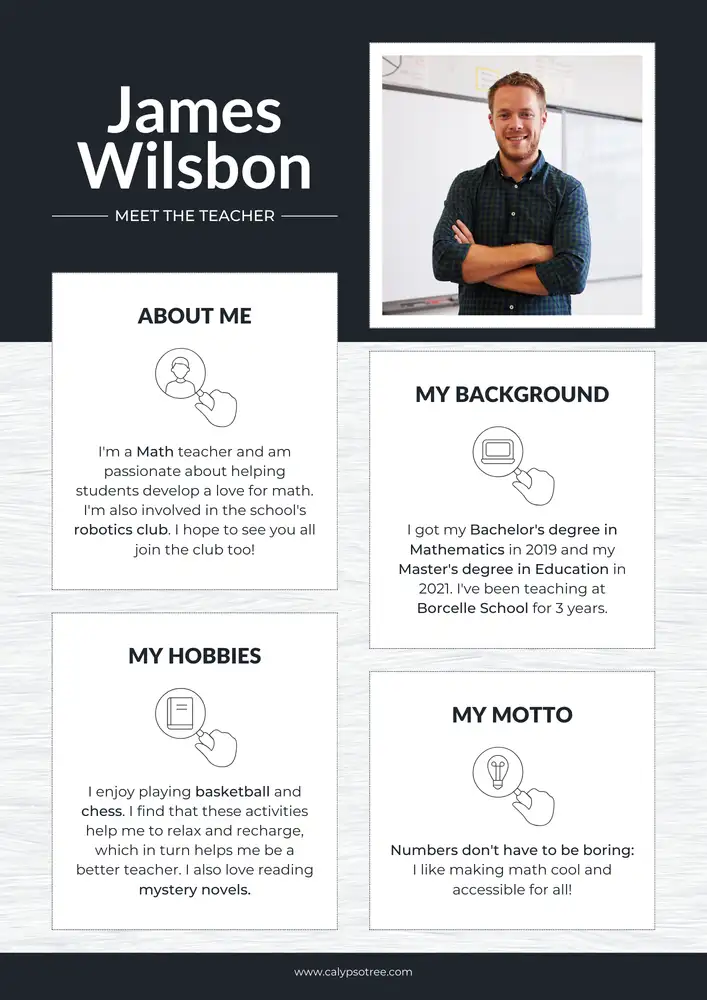
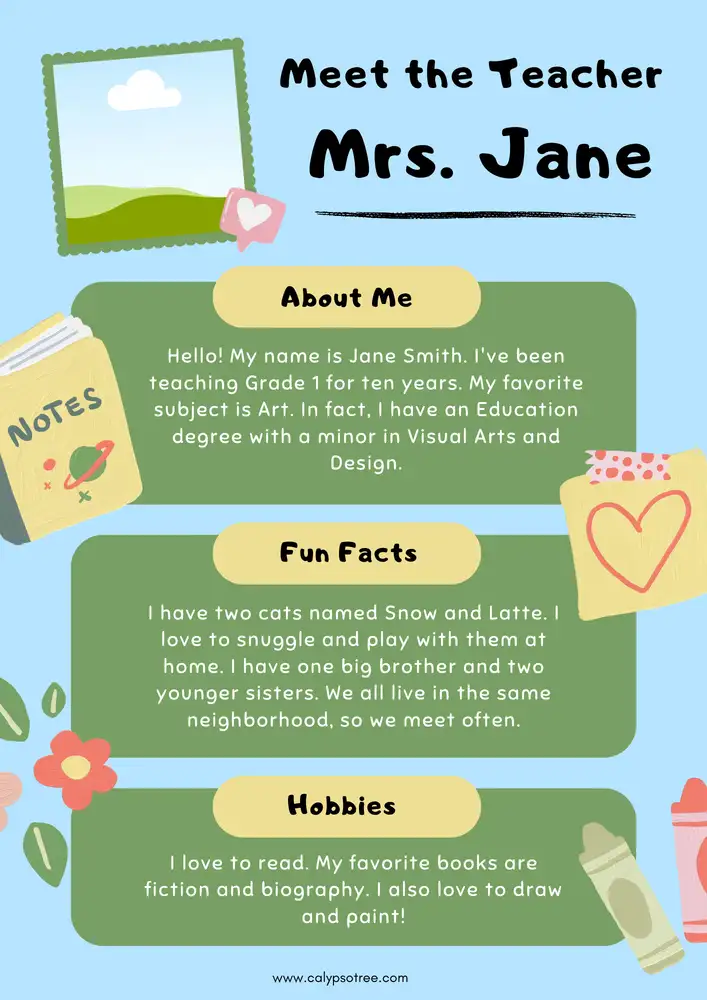
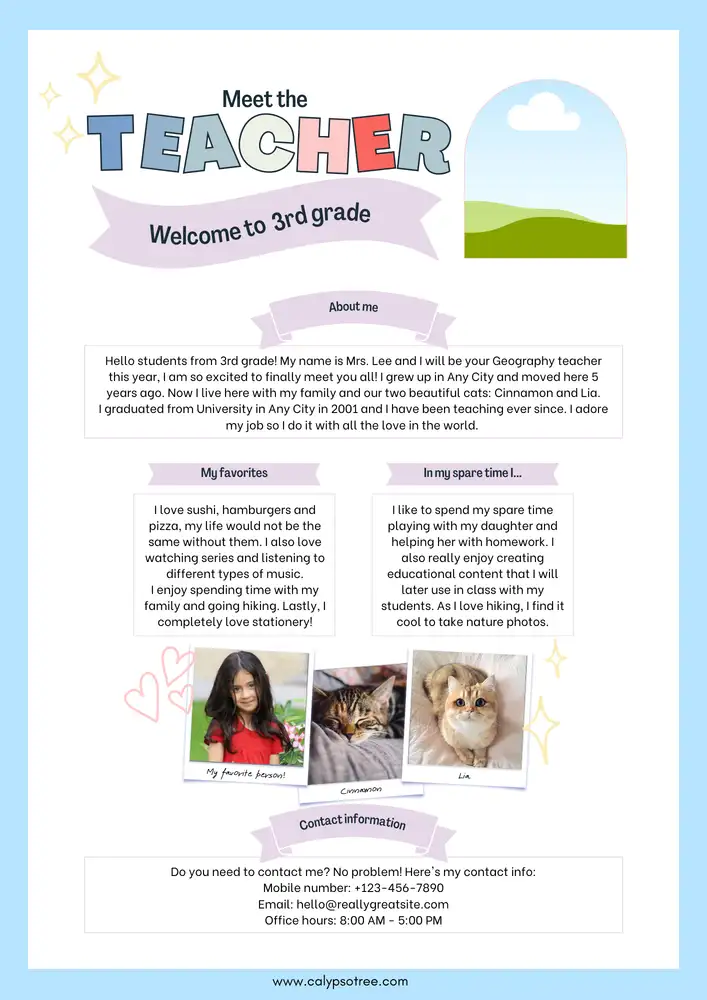
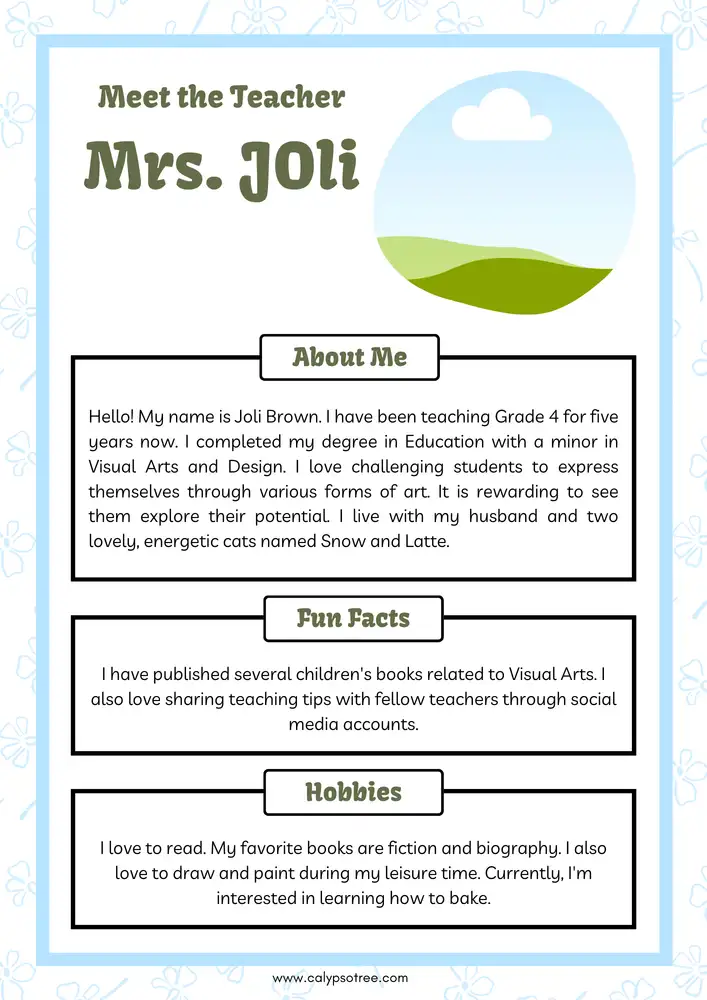
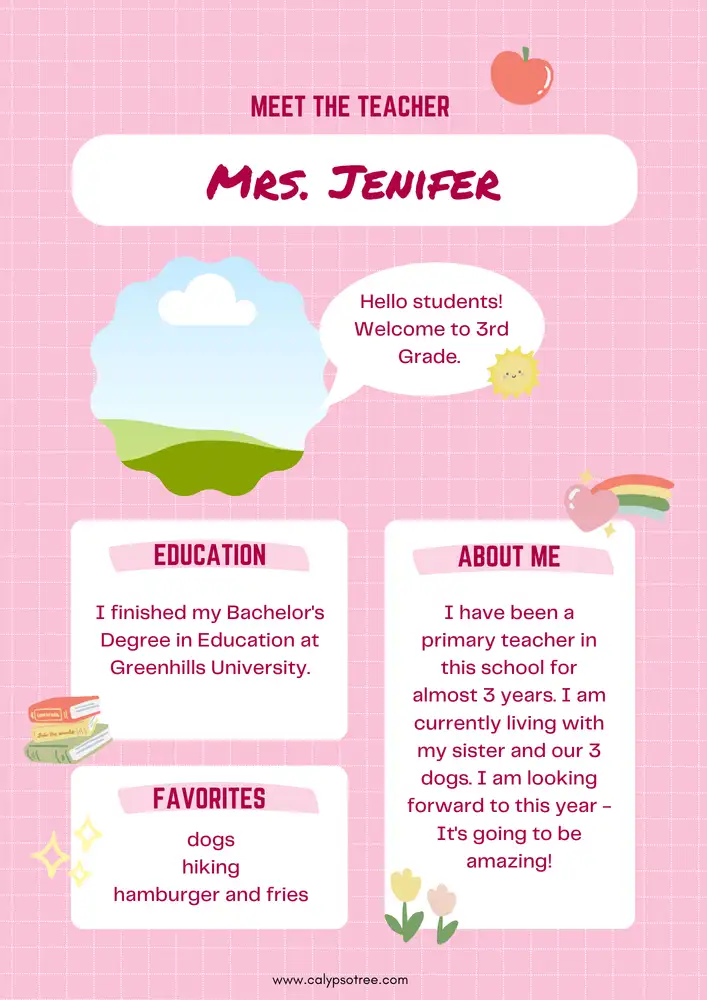
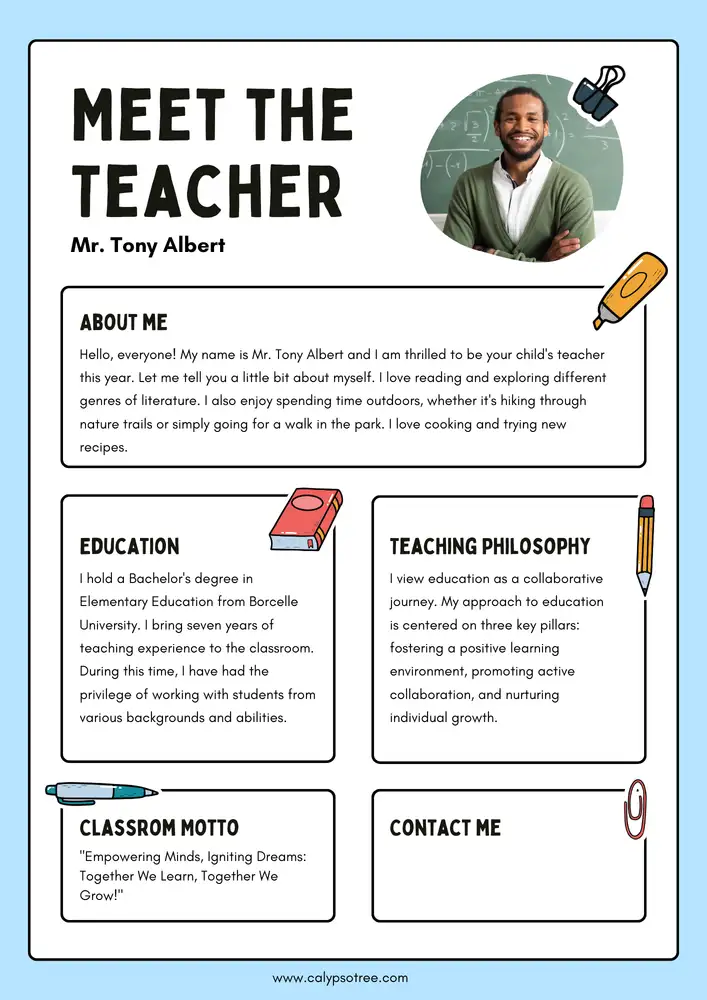
What Questions Should Parents Ask at “Meet the Teacher”?
Here are some key questions parents should consider asking during the event:
- What Are the Classroom Rules? Asking about the classroom rules helps parents understand what behavior is expected from their child.
- How Is Homework Handled? Homework is an integral part of the school. Parents should ask how much homework their child will get, how often it will be assigned, and when it is due. Knowing what kind of help the teacher expects parents to give at home is also helpful.
- What Will My Child Be Learning This Year? Understanding what subjects and topics will be covered during the school year is essential.
- How Do You Track Student Progress? Parents should know how the teacher tracks and reports their child’s progress. Parents should also ask what happens if their child struggles in a subject and how the teacher will help.
- How Can We Stay in Touch? Communication between parents and teachers is essential. Parents should ask the teacher how to stay in touch through email, phone calls, or a school app. They should also ask how often the teacher will send updates or newsletters about what’s happening in class.
- What Can I Do to Help My Child at Home? Teachers often have advice on how parents can support their child’s learning at home. This could include reading together, practicing math skills, or encouraging good study habits.
- Are There Any Special Projects or Events? Many classrooms have special projects or events during the school year. Parents should ask if there are any significant assignments, field trips, or activities they need to know about.
- How Do You Handle Discipline? Parents should understand how the teacher manages discipline. They should ask what happens if a child misbehaves and how the teacher deals with these situations.
- What Should I Do If My Child Needs Extra Help? If a child is having trouble with a subject, knowing how the teacher can provide extra help is essential. Parents should ask if tutoring options, extra practice worksheets, or after-school help are available. T
- How Can I Volunteer or Be Involved? Many teachers appreciate parent volunteers in the classroom. Parents should ask if there are opportunities to help with activities, events, or projects.
Parents can better understand what to expect during the school year and how they can best support their children. This shows the teacher that they are engaged and ready to work together for their child’s success.
How Should Teachers Prepare for a “Meet the Teacher” Event?
Here’s a simple guide to help teachers get ready for this big day:
Set Up the Classroom
The first thing a teacher should do is set up the classroom to look inviting and organized. This might include arranging desks, putting up colorful posters, and ensuring all materials are in place. A clean and organized classroom shows parents that the teacher is prepared and ready for the school year.
Prepare a Presentation
Teachers should create a simple presentation to guide the event. This can be a slideshow or a handout that explains what parents need to know. The presentation should cover the classroom rules, curriculum, communication methods, and other important details. Keeping the presentation clear and to the point helps parents follow along easily.
Create a Handout for Parents
It’s helpful to prepare a handout that parents can take home. This handout should include the teacher’s contact information, important dates, and a summary of what was discussed during the event.
Practice What to Say
Teachers should take some time to practice what they will say during the event. This helps them feel more confident and ensures they don’t forget anything important.
Plan for Questions
Parents will likely have questions, so teachers should be ready to answer them. Thinking ahead about what parents might ask helps teachers prepare clear and helpful answers. It’s also a good idea to leave time at the end of the event for a Q&A session.
Organize Student Work
Displaying some of the student’s work can be nice. It shows parents what their child is doing in class and shows the teacher’s commitment to student learning. Teachers can set up a small area where parents can see examples of assignments, art projects, or writing samples.
Be Welcoming and Positive
Finally, teachers should focus on being welcoming and positive. A warm smile and a friendly attitude help parents feel comfortable. This is parents’ first impression of the teacher, so it’s important to make it a good one.
What Information Should Teachers Share During “Meet the Teacher”?
Here’s a list of essential information teachers should share during the event:
- Classroom Rules and Expectations One of the first things teachers should discuss is the classroom rules.
- Daily Schedule Teachers should share the daily schedule with parents. This includes when school starts and ends when lunch and recess happen, and the times for math, reading, and science.
- Curriculum Overview Parents will want to know what their child will learn throughout the year.
- Homework Policies It’s important to explain how homework will be handled. Teachers should talk about how much homework students will get, how often it will be assigned, and what parents can do to help.
- Communication Methods Teachers should explain the best ways for parents to stay in touch. Clear communication is critical to a successful school year, Whether through email, phone calls, or a school app.
- Important Dates and Events Sharing a calendar of important dates is helpful for parents.
- Ways Parents Can Help Teachers should let parents know how they can support the classroom.
- How to Address Concerns Finally, teachers should explain how parents can address concerns during the school year. Whether it’s about their child’s progress, behavior, or anything else, parents need to know that they can contact the teacher for help and guidance.
Clear communication and shared expectations set the foundation for a successful school year.
How Can Parents Make the Most of “Meet the Teacher”?
Here are some simple steps parents can take to get the most out of “Meet the Teacher”:
- Come Prepared Before the event, parents should think about any questions they have. Writing down these questions can help parents remember what they want to ask. It’s also a good idea to bring a notebook or a device to take notes during the event.
- Listen Carefully During the event, parents need to listen carefully to what the teacher is saying.
- Ask Questions If something isn’t clear, parents should feel free to ask questions. Asking questions helps parents understand what to expect and how to help their child succeed. Some good questions might be about homework, classroom rules, or how the teacher handles discipline.
- Meet Other Parents “Meet the Teacher” is also a great time to meet other parents. Connecting with other families can help parents feel more involved in the school community.
- Take Notes: Taking notes during the event helps parents remember the details later.
- Follow-Up After the Event After “Meet the Teacher,” parents should follow up if they have more questions or concerns. Sending a quick email to the teacher is an excellent way to keep the lines of communication open.
Parents can make the most of the “Meet the Teacher” event by following these steps.
What Are Common Challenges During a “Meet the Teacher” Event?
While “Meet the Teacher” is an important event, it can come with some challenges. Awareness of these challenges can help teachers and parents have a smoother experience. Here are some common challenges and how to handle them:
- Time Management One of the biggest challenges is managing time. With so much information to share, the event can feel rushed. Teachers may have limited time to cover everything, and parents might feel like they didn’t get to ask all their questions. To overcome this, teachers can create a clear agenda and stick to it, ensuring there’s time for questions at the end.
- Large Groups: Another challenge is dealing with large groups of parents. When many parents are in the classroom, it can be challenging for everyone to hear and feel involved. Teachers can help by using a microphone and encouraging parents to ask questions individually. It could also break the group into smaller sections for certain parts of the event.
- Unanswered Questions Sometimes, there isn’t enough time to answer every question. This can leave parents feeling frustrated or unsure about what to expect. To help with this, teachers can offer to answer additional questions through email or set up a follow-up meeting if needed.
- Technical Issues If the event is held virtually, technical issues can be challenging. Problems with internet connections or software can disrupt the event and make it hard for parents to participate. To prepare for this, teachers should test all technology before the event and have a backup plan if something goes wrong.
- Teachers and parents might feel nervous during “Meet the Teacher.” Teachers might worry about making a good impression, and parents might feel anxious about meeting the teacher for the first time. A friendly and welcoming attitude can help everyone feel more comfortable. Teachers should be warm and approachable, and parents should remember that the teacher is there to help.
- Keeping Focus With so much going on, it can be challenging for teachers and parents to stay focused on important information.
When teachers and parents work together to overcome these challenges, it helps set the stage for a great school year.
How Can “Meet the Teacher” Benefit Students?
Here are some ways that “Meet the Teacher” benefits students:
- Building Trust When students see their parents and teachers working together, it helps build trust. They feel more secure knowing their parents and teachers are on the same page.
- Easing First-Day Jitters Starting a new school year can be scary for some students, especially if they don’t know their teacher yet.
- Setting Expectations During “Meet the Teacher,” the teacher will discuss the rules and expectations of students. When students hear these expectations from their teachers and parents, they understand what is expected of them.
- Encouraging Parent Involvement Students do better in school when their parents are involved. “Meet the Teacher” encourages parents to be part of their child’s education. When parents know what’s happening in the classroom, they can support their child’s learning at home.
- Creating a Positive Environment When students know their parents and teachers are working together, it creates a positive learning environment. Students feel more confident and ready to learn because they know everyone is on their side.
By attending “Meet the Teacher,” parents and teachers work together to support students.
Can “Meet the Teacher” Be Done Virtually?
Yes, “Meet the Teacher” can be done virtually! In today’s world, many schools use technology to connect teachers and parents. A virtual “Meet the Teacher” event can be as effective as an in-person event if planned well. Here’s how it can work:
- Using Video Calls: Instead of meeting in the classroom, the teacher and parents can meet via video call. Programs like Zoom, Google Meet, or Microsoft Teams allow everyone to see and hear each other online.
- Sharing Important Information During a virtual “Meet the Teacher,” the teacher can share their screen to show a presentation or important documents. Parents can see the classroom rules, the daily schedule, and the curriculum overview on their computer or tablet. After the meeting, the teacher can also send these documents to parents so they have all the information they need.
- Answering Questions Parents will have questions just like in an in-person event. During a virtual event, parents can ask questions through the chat feature or by unmuting their microphone. The teacher can answer these questions in real-time, like in a classroom.
- Recording the Meeting One benefit of a virtual “Meet the Teacher” event is that it can be recorded. Parents can watch the recording later if they can’t attend the live event. This ensures that all parents can access the critical information, even if they can’t join at the scheduled time.
- Flexible Scheduling Virtual events can be more flexible than in-person ones. Teachers might offer the event at different times or other days to accommodate parents’ schedules. This flexibility makes it easier for more parents to attend and be involved in their child’s education.
- Overcoming Distance Barriers Sometimes, parents can’t attend an in-person event because of distance or other commitments. A virtual “Meet the Teacher” removes these barriers, allowing all parents to participate, no matter where they are. This inclusiveness helps build a stronger school community.
Meet the Teacher Templates
“Meet the Teacher” templates are helpful tools for teachers to organize and present information during the event. Here’s how “Meet the Teacher” templates can be used effectively:
Introduction Template
An introduction template helps teachers structure their opening remarks. This might include a brief introduction of the teacher, their background, and what they enjoy about teaching.
Classroom Information Template
This template organizes all the details about the classroom, such as rules, daily schedules, and expectations. Curriculum Overview Template
A curriculum overview template allows teachers to outline what students will learn throughout the year.
Communication Template
The communication template explains how parents can stay in touch with the teacher. It might include contact information, preferred methods of communication, and how often parents can expect updates.
Q&A Template
A Q&A template provides a structured way to handle questions from parents. It can include common questions and space for parents to write them down. This helps keep the Q&A session organized and addresses all parent concerns.
Follow-Up Template
After the event, teachers can use a follow-up template to send parents a summary of the meeting.
Virtual Meet the Teacher Template
A unique template can guide an online meeting for virtual events. This template might include instructions for joining the video call, a schedule for the event, and tips for making the most of the virtual format.
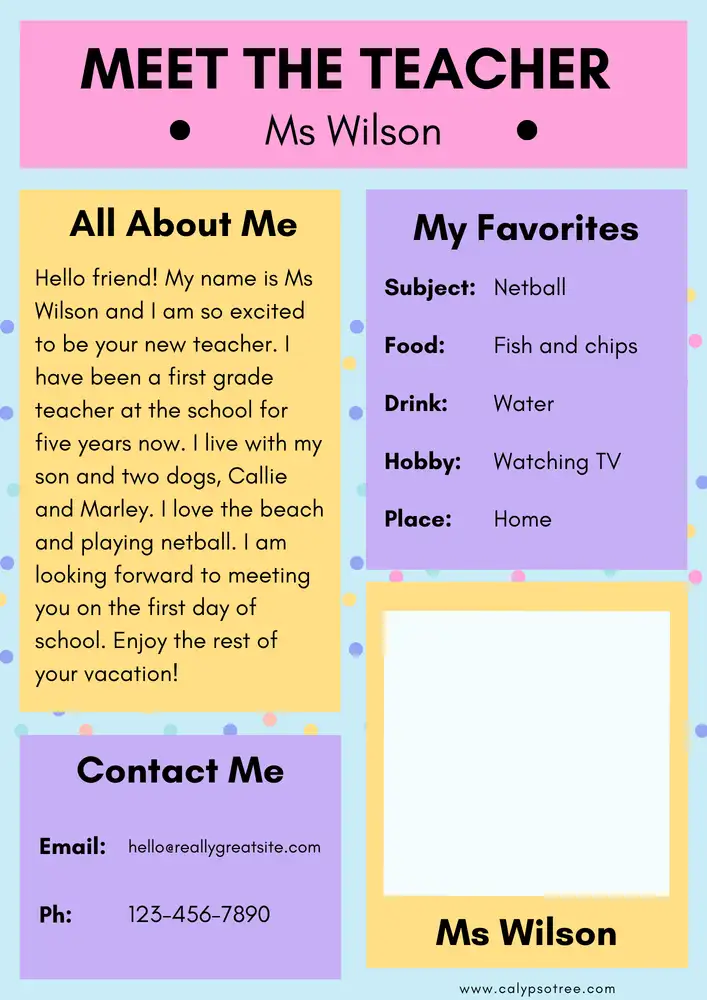
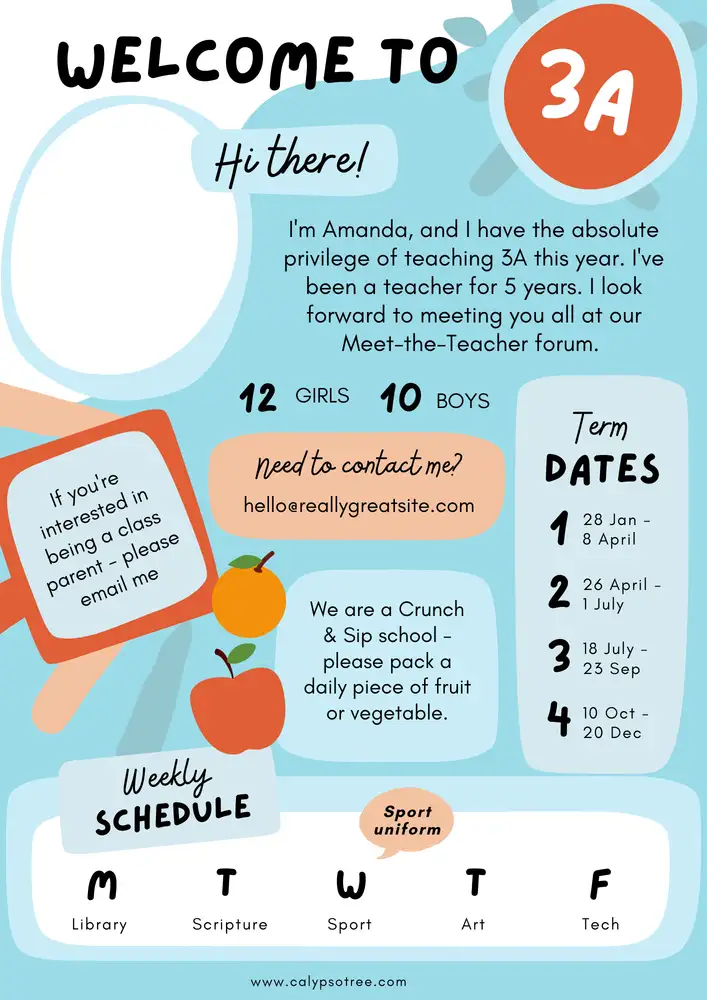
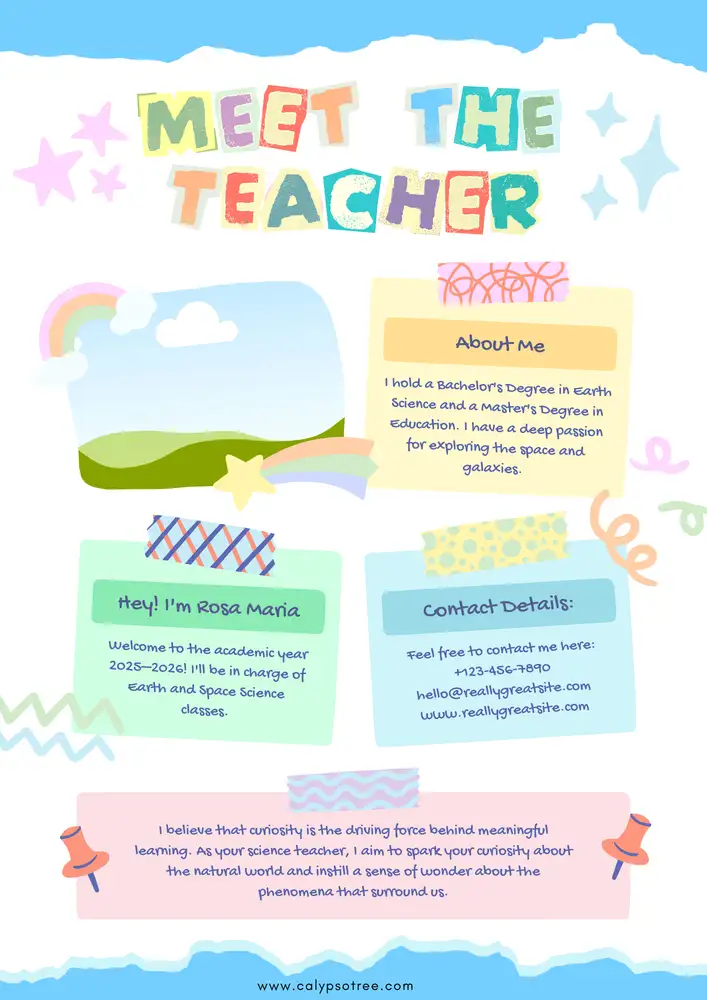
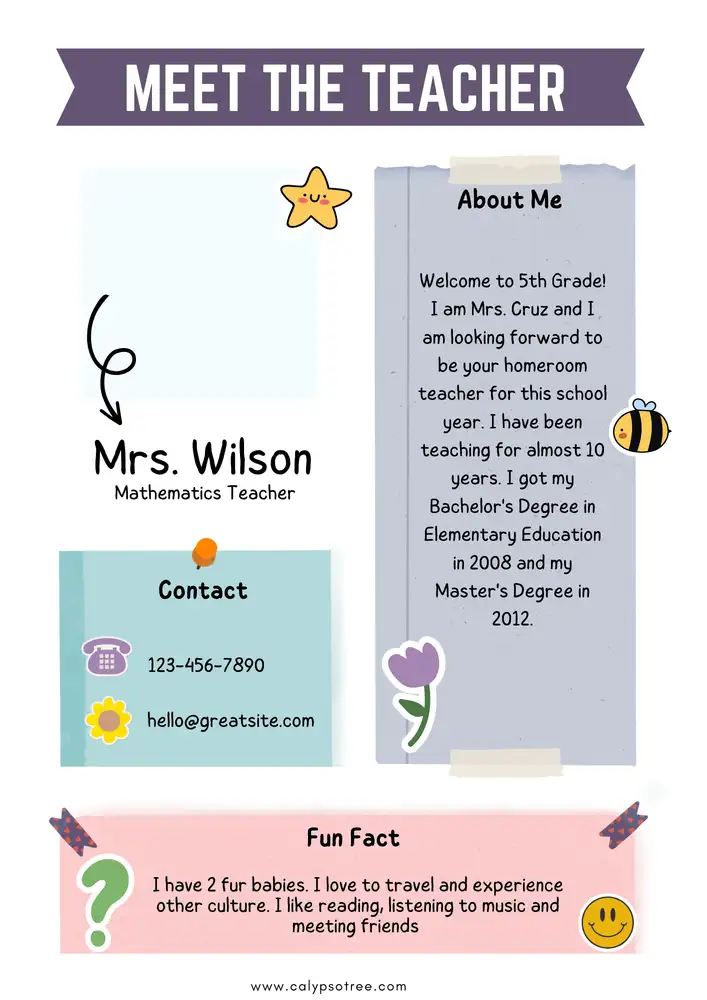
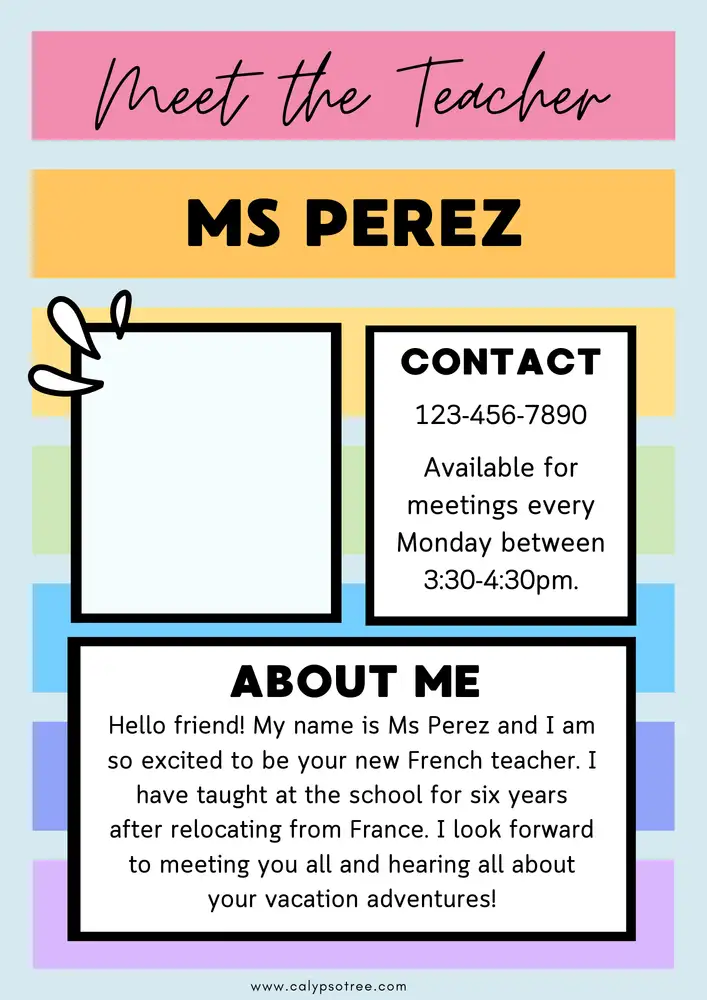
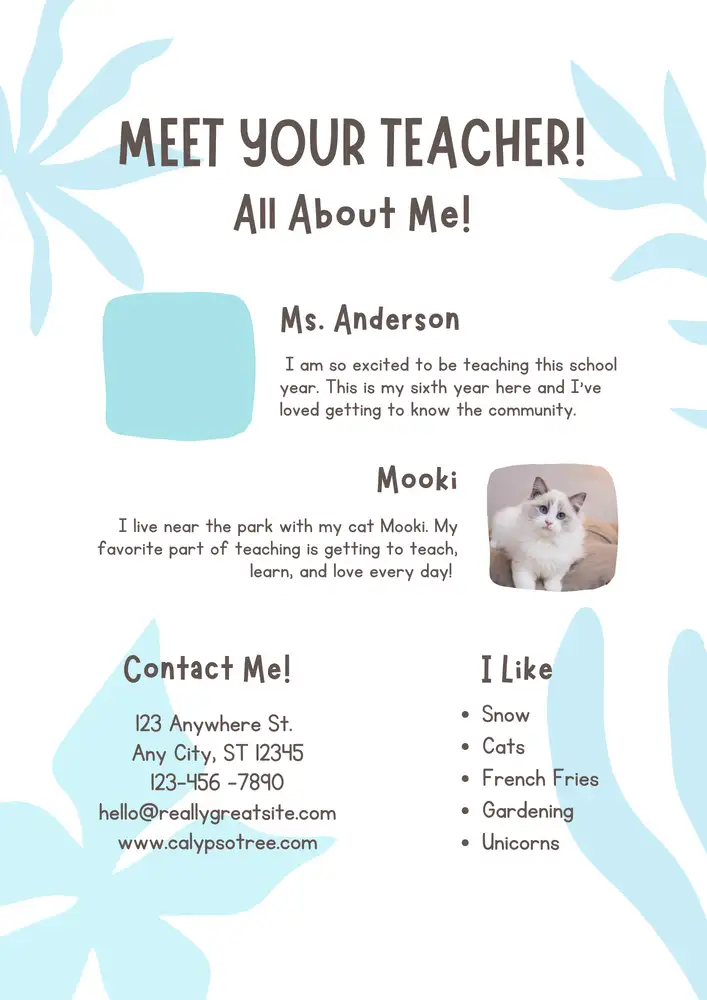
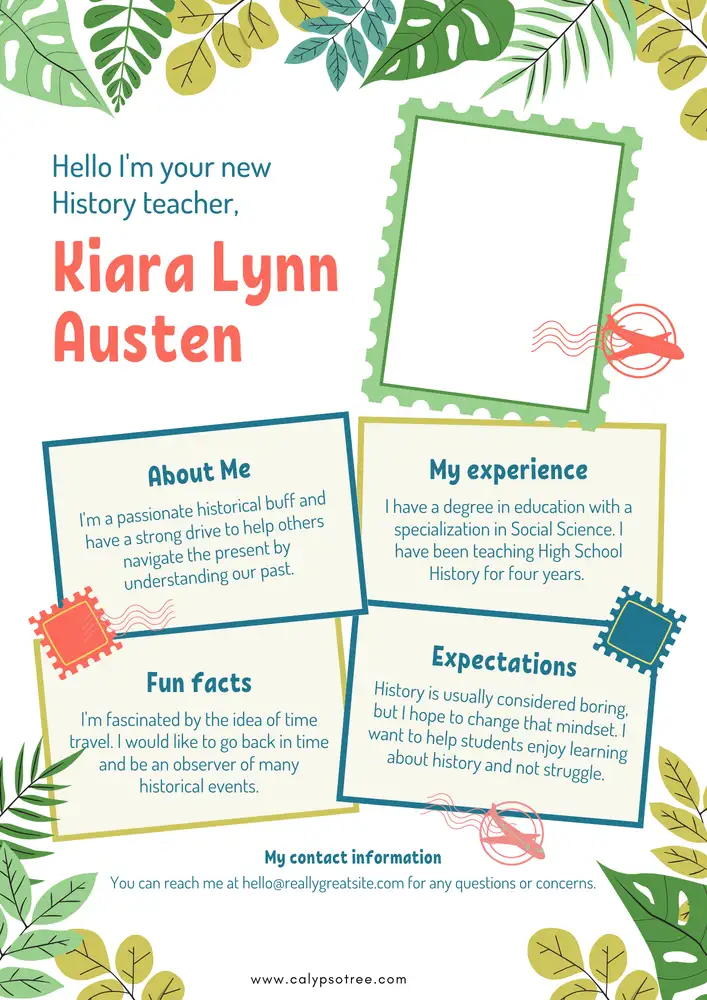
Using “Meet the Teacher” templates makes the event more organized and less stressful for teachers and parents.
“Meet the Teacher” is an essential event that helps build strong relationships between parents, teachers, and students. Using templates can make the event more accessible to plan and more effective. Whether the event is in-person or virtual, templates help ensure that all critical information is shared, making the school year successful for everyone involved.

The content creator team at calipsotree.com is dedicated to making topics accessible to everyone, with over 9 years of experience in writing and breaking down complex concepts into easy-to-understand articles that answer readers’ financial questions.







